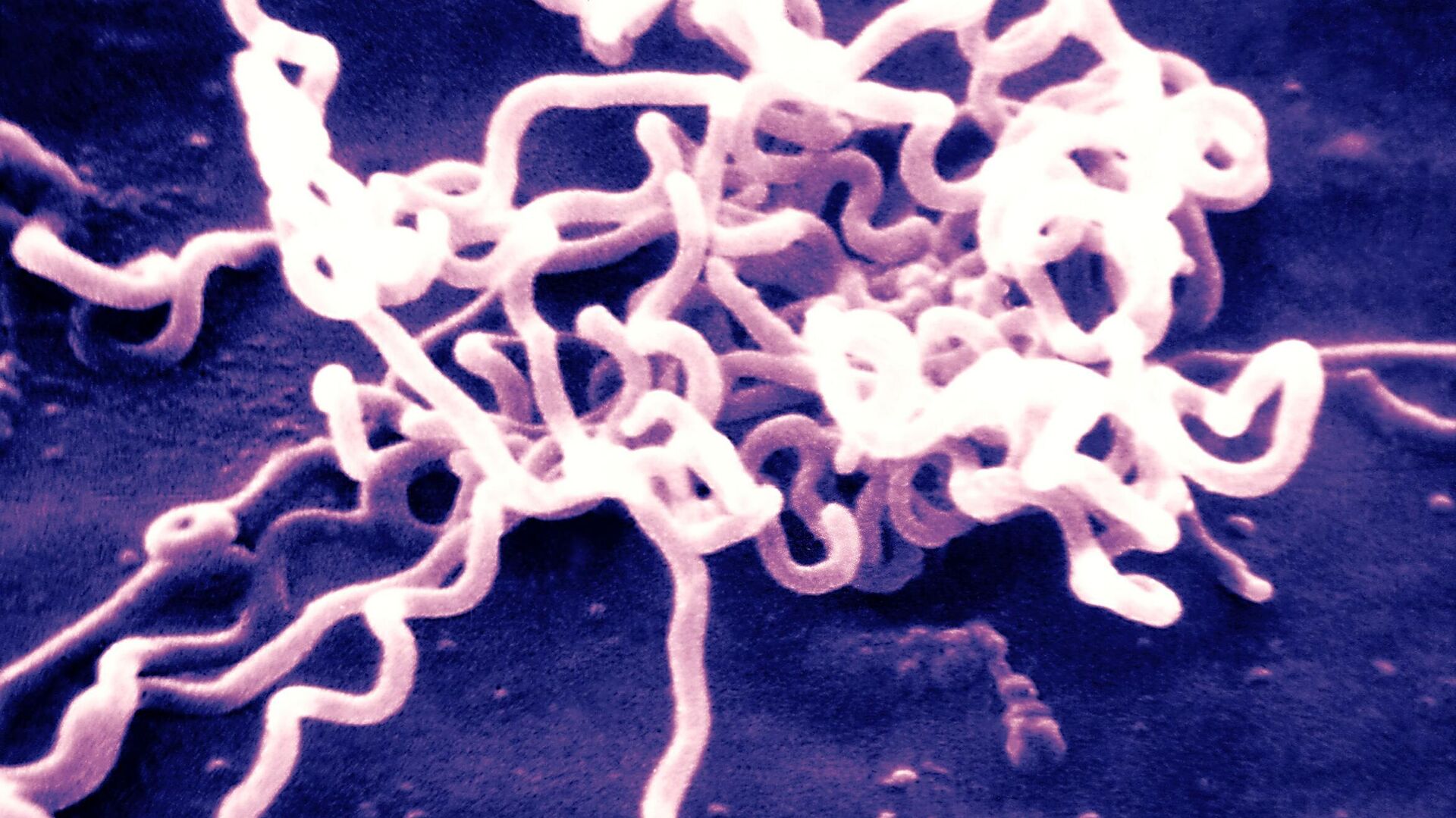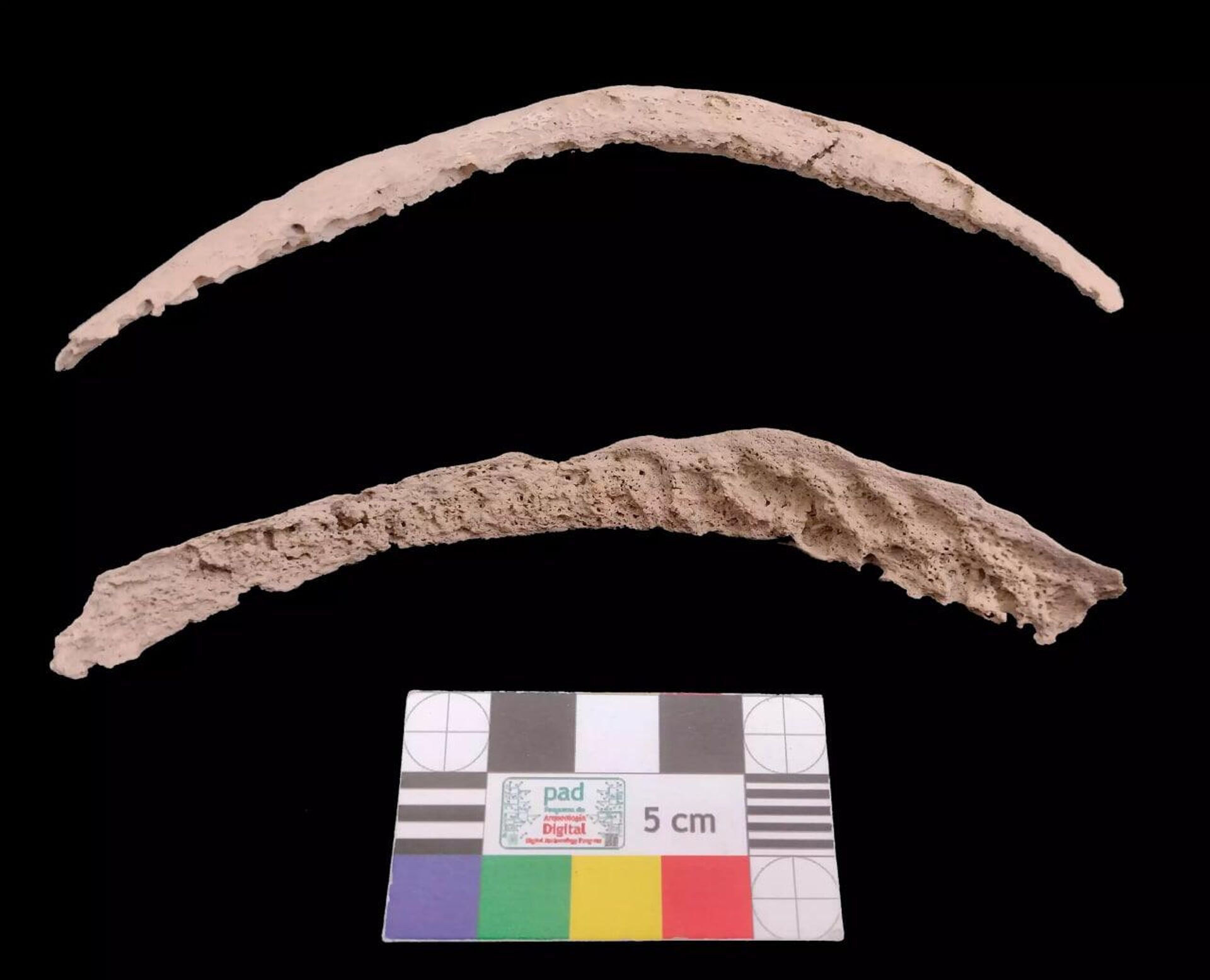https://en.sputniknews.africa/20250105/syphilis-a-grim-legacy-of-colonialism-and-its-roots-in-the-americas-1070043963.html
Syphilis: A Grim Legacy of Colonialism And Its Roots in the Americas
Syphilis: A Grim Legacy of Colonialism And Its Roots in the Americas
Sputnik Africa
Syphilis is a bacterial infection mainly spread through sexual contact, starting as a usually painless sore on the body. It can be passed to a baby during... 05.01.2025, Sputnik Africa
2025-01-05T14:09+0100
2025-01-05T14:09+0100
2025-01-05T14:09+0100
europe
mexico
chile
international
syphilis
peru
colonialism
disease
history
science
https://cdn1.img.sputniknews.africa/img/07e9/01/05/1070044331_0:365:2343:1682_1920x0_80_0_0_13627fb99514fcec9226b68ceff6e17c.jpg
A groundbreaking study by researchers from the Max Planck Institute for Evolutionary Anthropology has confirmed that syphilis, a disease that ravaged Europe in the late 15th century, originated in the Americas.By analyzing ancient pathogen genomes from archaeological bones, the team resolved a long-standing debate about whether syphilis was brought to Europe by Columbus and his crew or existed there previously.The first recorded outbreak of syphilis in Europe occurred in 1495 during Charles VIII’s Italian campaign, mere years after Columbus’s return from the Americas. Known for its devastating symptoms and high mortality rate, the disease quickly spread across Europe, sparking theories about its origins. The “Columbian theory” proposed that syphilis was introduced to Europe through contact with the Americas. While compelling, this theory faced challenges from findings of syphilis-like lesions in pre-1492 European bones.Using advanced genomic techniques, researchers analyzed ancient DNA from bones in Mexico, Chile, Peru, and Argentina, confirming that the Americas were a hub of genetic diversity for the syphilis disease family. This group includes related diseases such as yaws and bejel, which have been found in equatorial regions globally. The study revealed that indigenous American populations harbored early forms of these diseases, but it was European networks of human trafficking and colonization that facilitated their worldwide spread.The research underscored how colonialism not only reshaped political and social landscapes but also had profound biological consequences. By the 16th century, syphilis and its relatives had spread across continents, becoming emblematic of the destructive impact of European expansion.Researchers noted that while the current evidence supports an American origin for syphilis, further studies may uncover earlier related diseases, shedding new light on the global history of this infamous pathogen.
europe
mexico
chile
peru
argentina
latin america
north america
south america
Sputnik Africa
feedback@sputniknews.com
+74956456601
MIA „Rossiya Segodnya“
2025
Christina Glazkova
https://cdn1.img.sputniknews.africa/img/07e7/0b/07/1063380906_0:0:673:674_100x100_80_0_0_79628b4d0cd9f29291a57aa13bbf9e7a.jpg
Christina Glazkova
https://cdn1.img.sputniknews.africa/img/07e7/0b/07/1063380906_0:0:673:674_100x100_80_0_0_79628b4d0cd9f29291a57aa13bbf9e7a.jpg
News
en_EN
Sputnik Africa
feedback@sputniknews.com
+74956456601
MIA „Rossiya Segodnya“
Sputnik Africa
feedback@sputniknews.com
+74956456601
MIA „Rossiya Segodnya“
Christina Glazkova
https://cdn1.img.sputniknews.africa/img/07e7/0b/07/1063380906_0:0:673:674_100x100_80_0_0_79628b4d0cd9f29291a57aa13bbf9e7a.jpg
europe, mexico, chile, international, syphilis, peru, colonialism, disease, history, science, research, argentina, latin america, north america, south america
europe, mexico, chile, international, syphilis, peru, colonialism, disease, history, science, research, argentina, latin america, north america, south america
Syphilis: A Grim Legacy of Colonialism And Its Roots in the Americas
Christina Glazkova
Writer / Editor
Syphilis is a bacterial infection mainly spread through sexual contact, starting as a usually painless sore on the body. It can be passed to a baby during pregnancy, childbirth, and sometimes breastfeeding. The bacteria can be dormant for years but may reactivate, potentially causing severe damage to the heart, brain, and other organs if untreated.
A groundbreaking study by researchers from the Max Planck Institute for Evolutionary Anthropology has confirmed that syphilis, a disease that ravaged Europe in the late 15th century, originated in the Americas.
By analyzing ancient pathogen
genomes from archaeological bones, the team resolved a long-standing debate about whether syphilis was brought to Europe by Columbus and his crew or existed there previously.
The first recorded
outbreak of syphilis in Europe occurred in 1495 during Charles VIII’s Italian campaign, mere years after Columbus’s return from the Americas. Known for its devastating symptoms and high mortality rate, the disease quickly spread across Europe, sparking theories about its origins. The “Columbian theory” proposed that syphilis was introduced to Europe through contact with the Americas. While compelling, this theory faced challenges from findings of syphilis-like lesions in pre-1492 European bones.
Using advanced genomic techniques, researchers analyzed ancient DNA from bones in
Mexico, Chile, Peru, and Argentina, confirming that the Americas were a hub of genetic diversity for the syphilis disease family. This group includes related diseases such as yaws and bejel, which have been found in equatorial regions globally. The study revealed that indigenous American populations harbored early forms of these diseases, but
it was European networks of human trafficking and colonization that facilitated their worldwide spread.The research underscored how colonialism not only reshaped political and social landscapes but also had profound biological consequences. By the 16th century, syphilis and its relatives had spread across continents, becoming emblematic of the destructive impact of European expansion.
Researchers noted that while the current evidence supports an American origin for syphilis, further studies may uncover earlier related diseases, shedding new light on the global history of this infamous pathogen.



